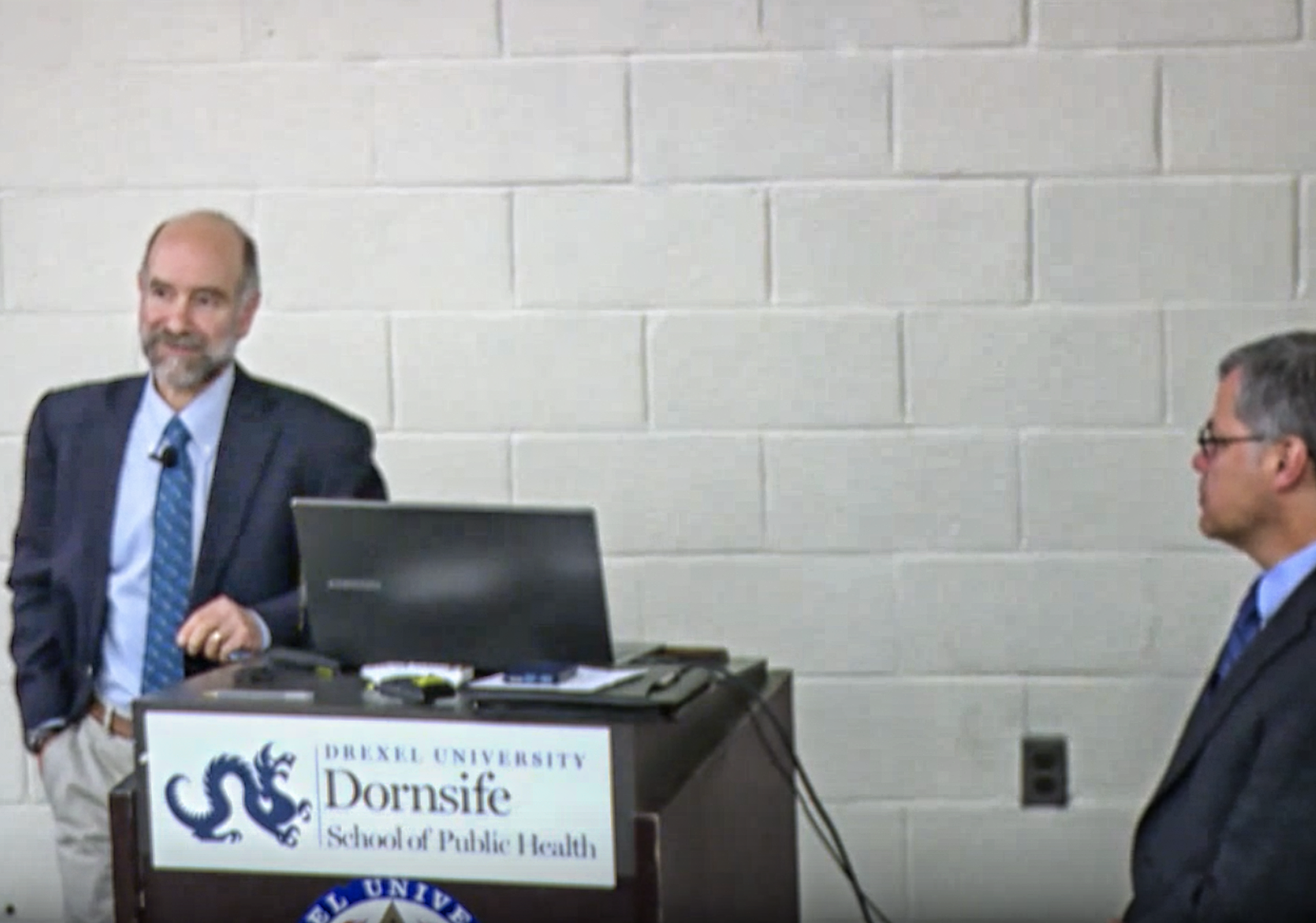Confronting the Global Climate Crisis May be Best Way to Fight Chronic Diseases, According to Population Health Spotlight Speaker Jonathan Patz
 Leading climate change scientist Jonathan Patz, MD, MPH, presented the school's March 8 Population Health Spotlight lecture, Confronting the Global Climate Crisis May be Best Way to Fight Chronic Diseases.
Leading climate change scientist Jonathan Patz, MD, MPH, presented the school's March 8 Population Health Spotlight lecture, Confronting the Global Climate Crisis May be Best Way to Fight Chronic Diseases.
March 9, 2017
When Dornsife Professor Jerry Fagliano, PhD, MPH, chair of the Environmental and Occupational Health Department, stood to introduce Jonathan Patz’s Population Health Spotlight lecture earlier this month, his words provided context to the growing urgency of global climate issues.
Twenty years have passed since Patz had approached Fagliano, then the environment section program planner for the American Public Health Association, about doing a session on climate change at the APHA national conference. “At the time it seemed like a fringe idea – but he was persistent, so we planned a session,” said Fagliano, noting that APHA has declared 2017 the Year of Climate Change and Health – the theme for the organization’s upcoming annual meeting this fall.
Today Jonathan Patz, MD, MPH, (@jonathanpatz) is director of the Global Health Institute at the University of Wisconsin-Madison. For 15 years, Patz served as a lead author for the United Nations Intergovernmental Panel on Climate Change (or IPCC)—the organization that shared the 2007 Nobel Peace Prize with Al Gore. He also co-chaired the health expert panel of the U.S. National Assessment on Climate Change, a report mandated by the U.S. Congress.
Patz’s message is clear: whether you call it climate change, climate damage or climate crisis – climate issues are, he said, “The greatest environmental public health challenge we face... and combating climate change might be the best opportunity we have to fight chronic disease.”
Using a series of charts and maps, Patz outline the risks ahead, if we do not slow global warming by curbing fossil fuel consumption and carbon emissions. People around the globe will die in heat waves…air pollution and “aero-allergens” will exacerbate COPD, asthma and other respiratory ailments. Vector-borne diseases such as malaria and encephalitis will spread as warmth and water enable insects to thrive.
The combination of three conditions – rising temperatures, rising sea levels and “hydrologic extremes” like floods and droughts – will take a heavy toll, exacerbating water-borne diseases such as cholera, and triggering malnutrition and diarrhea as clean water and food supplies are threatened.
Patz said that more floods, droughts, extremes in climate variability and weather disasters can impact mental health and trigger post traumatic stress syndrome (PTSD). “This can also create environmental refugees – populations forced to migrate due to sea-level rise or droughts,” said Patz, adding “This is very difficult to quantify – whether it’s environmental stressors or political problems, but frankly this could be under the tip of the iceberg as a very big problem.”
Noting that today some 840 million people are at risk for hunger globally, Patz said that scientific models project that “by mid-century that number could double, because of temperature extremes and the negative affect on food crops.”
Similarly, longer warm seasons mean more pollen and ragweed, more “bad air” days as ozone levels rise. And higher temperatures mean more disease-carrying mosquitos, because, Patz said,” The warmer the temperature, the faster the mosquito becomes infectious and spreads malaria and other diseases.”
Ultimately, Patz asserted, climate change is a national security issue. “The US is most responsible for climate change, “he said. “We emit six times the global average CO2 per capital compared to other people around the world.”
Patz is convinced that framing climate change as a health issue will get us to the right policies faster. “While climate change isn’t cost free, the public health co-benefits could result in in a net revenue gain,” he said.
During the audience discussion, someone posed the question that if you save on health care by reducing fossil fuel dependency - how do you reconcile that with the fossil fuel producers, who lose money as a result?
Patz said that it is role of government to reconcile: “When those who have to pay a price need to get a fair shake, government can make it happen. For the coal miners – we need to invest in other jobs for them.” He added that new research has found that people in mining states such as West Virginia, Ohio and Pennsylvania would gain the greatest health benefit if coal-fired heating were eliminated.
Framing climate change as a health - rather than environmental - issue is key. “Human health is a core part of climate change crisis – I would make that case,” he said.
View Jonathan Patz’s Population Health Spotlight Lecture
Read Dr. Patz's commentary on the Philly.com Public's Health blog